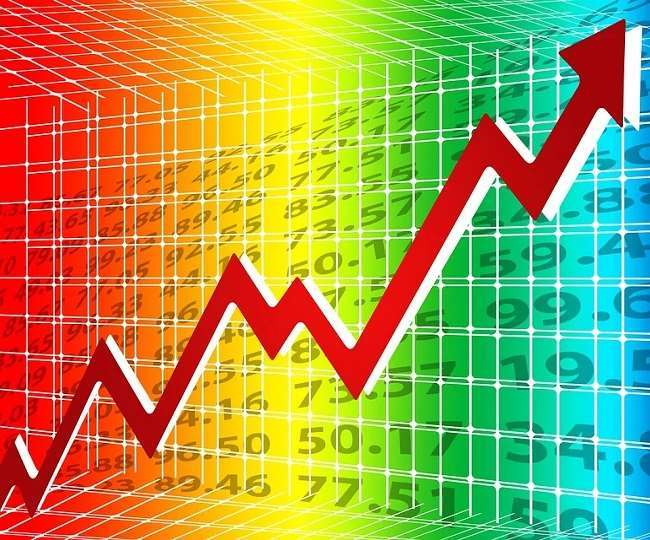Rise In Indian Stock Markets After RBI Decision
Rise in Indian stock markets after RBI decision, Sensex rises 580 points.
The Reserve Bank of India (RBI) on Wednesday kept the key interest rates unchanged to help the economy fight the second wave of the Coronavirus epidemic.
This decision of RBI has seen an increase in the Indian stock market and bond yields. The RBI on Wednesday maintained key interest rates at a record low.
The Central Bank’s decision has been welcomed by the market amid fears of slowing economic recovery due to a rapidly growing infection in the second wave of the Coronavirus epidemic.
To reduce the impact of the epidemic on the economy, the Reserve Bank of India has reduced the repo rate by 1.15 percent since March 2020.
Rise in Indian stock markets: The Reserve Bank has maintained the repo rate at four percent, the reverse repo rate at 3.35 percent, and the bank rate at 4.25.
After the central bank’s decision to keep the interest rates unchanged, the country’s major 10-year bond yield increased by 5 basis points to 6.16 percent. At the same time, the Indian rupee has weakened against the dollar.
After the RBI decision, the Bombay Stock Exchange Sensitive Index Sensex on Wednesday afternoon was trading at 49,786.64, gaining 1.19 percent or 584.80 points.
At the same time, the National Stock Exchange index Nifty was trading at 14,850.50 with a gain of 1.14 percent or Rs 167.
At 12.30 pm on Wednesday afternoon, 29 of the 30 Sensex stocks appeared on the green mark. The fastest gains were seen in the shares of PowerGrid, SBI, Nestle India, Bharti Airtel, and Dr. Reddy.
At the same time, out of 50 stocks of the Nifty, 47 appeared on the green mark and 3 on the red mark. The fastest in the Nifty-50 was seen in JSW Steel and PowerGrid.
RBI estimates retail inflation to be 5.2% in the first and second quarter of 2021-22.
The Reserve Bank of India said on Wednesday that it expects retail inflation to remain at 5.2 percent in the first half of the current financial year.
With this, the central bank lowered the inflation estimate to five percent for the quarter ended in March.
Shaktikanta Das said that in the year 2020-21, retail inflation stood at five percent, whereas it was earlier projected to be at 5.2 percent.
The MPC has projected retail inflation at 5.2 percent in the first and second quarters of FY 2021-22, 4.4 percent in the third quarter, and 5.1 percent in the fourth quarter.
RBI Governor Shaktikanta Das, while announcing the first monetary policy for the current financial year, said that coordinated efforts by the Center and the states have provided some relief from domestic taxes on petroleum products.
However, due to international crude oil prices and logistic costs, manufacturing and services can become expensive. The Reserve Bank has maintained the repo rate at four percent, reverse repo rate at 3.35 percent, bank rate at 4.25.
Das said that there has been some relief in the rates of domestic taxes on petroleum products through coordinated actions by the Center and the states.



